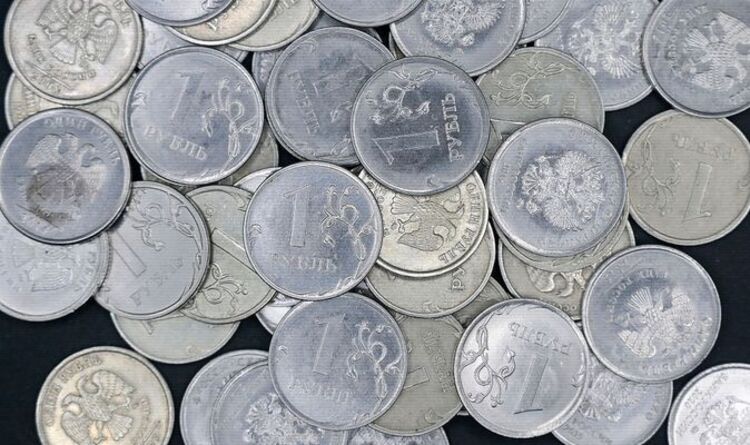Russian ruble falls to all-time low following economic sanctions
We use your sign-up to provide content in ways you’ve consented to and to improve our understanding of you. This may include adverts from us and 3rd parties based on our understanding. You can unsubscribe at any time. More info
After seeing some recovery in recent days, the ruble has slumped again following yesterday’s payment deadline falling back to 105 to the dollar as uncertainty remains over a potential default. In an interview with state broadcaster Russia Today, Russian finance minister Anton Siluanov insisted payment had been made. He said: “The capability or incapability of meeting our obligations in foreign currency equivalent does not depend on us, we have the money, we have made the payment, now the ball is in the court, primarily, of the American authorities.” Mr Siluanov has accused the US and its allies of trying to engineer an “artificial default” in Russia due to the sanctions placed on it.
While Russia has sizeable foreign currency reserves worth $640 billion (£485.29bn) around half of this has been frozen leading to speculation Russia would be unable to pay foreign debts in dollars.
With foreign currency restricted President Vladimir Putin has even issued a decree that ‘unfriendly countries’, such as the US, should be paid in rubles.
It is not yet known whether Russia has attempted to pay Wednesday’s bond in rubles or dollars.
Mr Siluanov said: “The payment has reached the correspondent American bank.
“At the moment the payment is being processed and we do not yet have reports on whether it has gone through or not.


“It has not been cleared yet.”
Under the terms of the bond payments have to be made in dollars, with no provision for different currencies, meaning an attempt to pay in rubles could still be considered a default.
This was confirmed by global ratings agency Fitch earlier this week, who have already downgraded Russia to a C which is typically used for those near to default.
Wednesday’s payment date is followed by a 30 day grace period so a full default will only be confirmed then, however Russia will also face further debt payments within that time.

Concern has also grown as to whether Russia’s private companies will struggle to pay offshore debts.
Russian steelmaker Severstal revealed it was having to make a test payment on $12.6m (£9.55m), also due yesterday, to confirm whether or not it would go through.
The company said: “At the moment we certify that there are no obstacles from Russian law side for the company to make the payment under the loan in order for the issuer to discharge the coupon payment under the notes.”
“However, given the recent developments around the company, we have grounds to believe that Citibank, NA, London Branch, acting as principal paying and transfer agent and the account bank in respect of the notes, may refrain from processing the payment initiated by the company in accordance with the terms of the loan and the notes documentation.”
DON’T MISS:
UK heading for worst recession since the 1970s [REVEAL]
Putin’s economy faces ‘full-blown collapse’ with $117m default [ANALYSIS]
Bank of England set for third interest rates hike [INSIGHT]

Citi is also the paying agent for Wednesday’s sovereign debt payment but did not respond immediately when asked for comment.
A default by Russia would be a further blow to its economy at a time international finance is already severing its few remaining ties.
Gael Fichan, fixed income portfolio manager at Syz Group, said: “Defaulting will significantly increase Russia’s risk premium when it wants to return to the markets to borrow again.”
For international investors meanwhile Phillip Pearce, Associate for Global Capital Markets at Validus Risk Management, predicted “paper loses could be realised for many investors” however with low global exposure to Russia “most institutions should be capable of absorbing the loses”.
Source: Read Full Article
